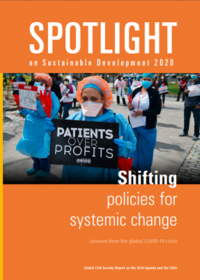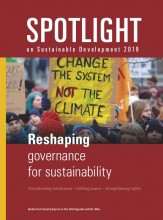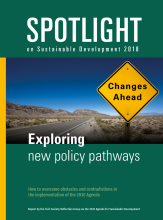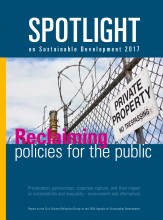
On the eve of the (virtual) United Nations 75th anniversary event and the Global Goals Week authors presented this year's global civil society report Spotlight on Sustainable Development.
If you missed the virtual launching event you can watch the recording here.
Find the report & further information here.











